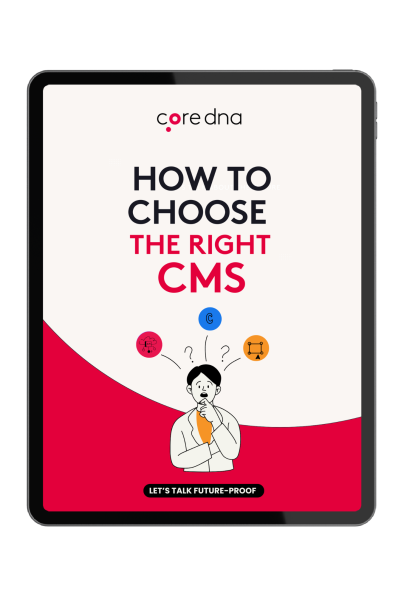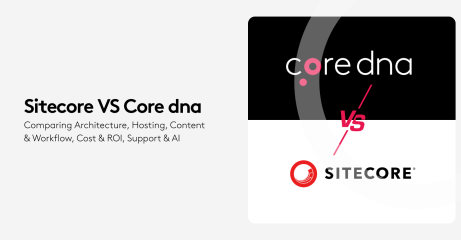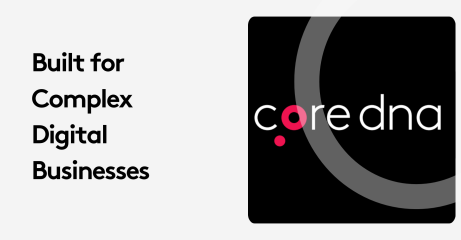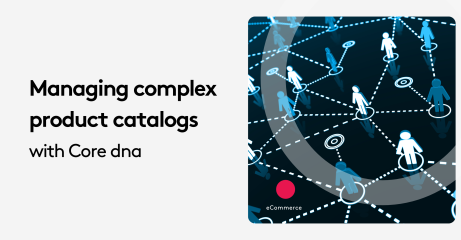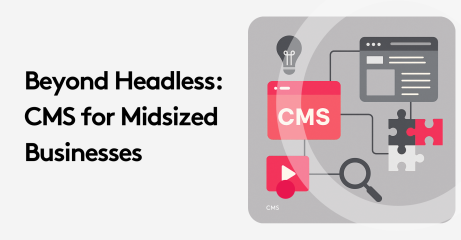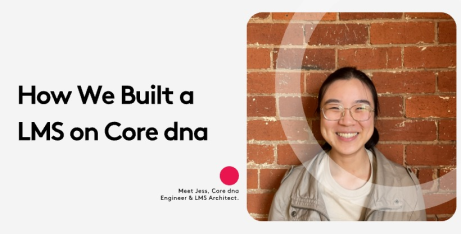A Practical Guide to Content Optimization with AI

Ok, content optimization is key to winning the content marketing game.
Yes, we hear you "SEO is dead" people, but in our case, it's all about better be safe than sorry. So for those who are like us, he is a guide to learn how to optimize your content.
Content optimizing is all about refining your any type of content to boost visibility, engagement, and conversions. It's fine-tuning your machine until you get the desired results.
Generative AI tools have been a god sent as they make content optimization faster and better. They help analyze content and provide insights based on the vast amount of the data out there.
Ok Let's dive into how we can win the content game and how to best optimize your content
Key takeaways
- Align with user intent: Understand what your audience is searching for and tailor content accordingly.
- Leverage AI tools: Use platforms like Frase, Surfer SEO, and ChatGPT to streamline and improve content creation.
- Optimize across platforms: Tailor content for blogs, product pages, landing pages, and social media.
- Test and improve: Continuously monitor performance and make data-driven updates for better results.
On this page:
Understanding Search Engine Optimization (SEO)
Seo is a big part of content optimization.
It has been the standard of how search engines understand and rank content. Recently, social media platforms are shifting away from hashtags.
They are now focusing on SEO. They analyze captions to see how relevant the content is. By optimizing various elements, you increase the likelihood of appearing in top search results. Here are some SEO fundamentals.
Fundamentals of SEO
Effective SEO encompasses several key components:
Keyword Research: Identifying the terms and phrases your target audience uses when searching for information related to your products or services. This insight allows you to tailor your content to meet user intent.
On-Page Optimization: Refining individual web pages by optimizing title tags, meta descriptions, headers, and image alt texts. High-quality, relevant content that provides value to readers is central to this aspect.
Technical SEO: Improving the backend aspects of your website, such as enhancing site speed, ensuring mobile-friendliness, and securing connections with HTTPS. These factors contribute to a better user experience and higher search rankings.
Off-Page Optimization: Building high-quality backlinks from reputable websites to establish your site's authority and credibility in your industry.
User Experience (UX): Creating an intuitive and engaging website that encourages visitors to explore your content, reducing bounce rates and signaling value to search engines.
Effective Content Optimization Strategies
Great content isn’t enough anymore. With search algorithms getting smarter and user expectations rising, it takes smart, strategic work to make sure your content performs.
Whether you're optimizing blog posts, product pages, or landing pages, the right content optimization strategies can boost visibility, engagement, and conversions.
Here's how to make it happen.
Understand and Align With User Intent
Before anything else, get clear on what your audience wants. Are they looking for answers, ready to buy, or just browsing? Matching your content to search intent is step one.
Informational content works best in blogs, while product and landing pages need to focus on commercial or transactional intent. Meeting users where they are improves relevance, reduces bounce rates, and builds trust.
Optimize Blog Content to Educate and Engage
Blog posts are perfect for pulling in traffic at the top of the funnel. Start with solid keyword research, then structure your content with clear headers, bullet points, and concise sections.
Write for readability—short paragraphs, simple language, and a friendly tone. Include visuals, internal links, and a CTA that keeps readers moving. And don’t forget to update your posts regularly to keep them relevant.
Turn Product Pages into Conversion Machines
Product pages should do more than display specs—they need to convince. Write unique, benefit-focused descriptions and use keywords your buyers are searching for.
Include high-quality images, reviews, FAQs, and trust signals like free shipping or guarantees. A fast, mobile-friendly experience and a clear call-to-action can make all the difference.
Make Landing Pages Laser-Focused
Landing pages are all about one goal. Remove distractions and make your offer clear from the first headline. Focus on benefits, keep forms short, and repeat your CTA throughout the page.
Use testimonials or stats to build trust. If possible, personalize the experience or use dynamic content to match the visitor’s source or segment.
Use AI to Suspercharge Your Content Optimization
AI tools like Frase, Clearscope, Surfer SEO and Chatgpt an analyze top-ranking content, suggest keywords, and even generate first drafts.
They help you identify gaps, improve structure, and stay aligned with what search engines want. Use AI to refresh old content, test headlines, or adapt your message for different audience segments.
Leveraging AI Content Optimization Tools
If you're serious about content marketing optimization, AI tools can make a huge difference. Platforms like Frase, Surfer SEO, and Clearscope help take the guesswork out of what makes content rank—and resonate.
Frase
Frase is designed to streamline the content creation process by automating research and providing data-driven insights. Key features include:
- Automated Content Briefs: Frase generates detailed content briefs by analyzing top-performing articles related to your target keywords. This ensures that your content aligns with current trends and addresses relevant topics.
- Real-Time Optimization: As you write, Frase offers real-time suggestions to improve SEO, readability, and engagement, helping you craft content that resonates with both search engines and readers.
- Question Research: The platform identifies common questions that users are asking online, enabling you to address these queries within your content and enhance its value.
By utilizing Frase, content creators can efficiently produce well-researched and optimized content that meets the needs of their target audience.
Surfer SEO
Surfer SEO focuses on data-driven content optimization by analyzing various on-page factors that influence search rankings. Its notable features include:
- Content Editor: This tool provides guidelines on optimal content length, keyword usage, and structural elements based on an analysis of top-ranking pages for your chosen keyword.
- SERP Analyzer: Surfer SEO examines search engine results pages to identify patterns and factors contributing to high rankings, offering insights into how to structure and optimize your content effectively.
- Keyword Research: The platform suggests relevant keywords and their variations, helping you to create comprehensive content that covers a topic thoroughly.
By integrating Surfer SEO into your workflow, you can ensure that your content is optimized according to current SEO best practices, increasing its potential to rank higher in search results.
Clearscope
- Keyword Recommendations: Clearscope identifies high-impact keywords and related terms to incorporate into your content, ensuring it aligns with what users are searching for.
- Content Grading: The platform assigns a grade to your content based on its relevance and comprehensiveness compared to top-performing articles, guiding you toward creating more competitive content.
- Performance Tracking: Clearscope monitors your content's performance over time, alerting you to opportunities for updates or improvements to maintain or enhance its ranking.
ChatGPT
- Content Generation and Ideation: ChatGPT can assist in drafting articles, blog posts, and marketing copy, providing a solid foundation that can be refined to align with your brand's voice and messaging. Additionally, it can suggest topics and generate ideas, helping to overcome writer's block and ensuring a steady flow of content.
- SEO Optimization: By integrating ChatGPT with SEO-focused tools, you can enhance your content's search engine performance. For instance, the Rank Math SEO Optimized Content Writer 2.0 utilizes ChatGPT to generate content that adheres to SEO best practices, improving your website's visibility and organic traffic.
- Content Refinement: ChatGPT can analyze existing content and suggest improvements in areas such as clarity, engagement, and keyword integration. This ensures that your content remains relevant and resonates with your target audience.
Best Practices for Using ChatGPT in Content Optimization
To maximize the benefits of ChatGPT in your content strategy:
Provide Clear Prompts: Clearly articulate your requirements when interacting with ChatGPT. Detailed prompts yield more accurate and relevant responses. For example, specifying the desired tone, target audience, and key points can help generate content that aligns with your objectives.
Iterative Refinement: Use ChatGPT's outputs as a starting point. Review and edit the generated content to ensure it aligns with your brand's voice and meets quality standards. This collaborative approach combines AI efficiency with human creativity.
Integrate SEO Strategies: Incorporate relevant keywords and optimize content structure based on SEO principles. Tools like the FREE SEO Content Optimizer can analyze text for keyword density and readability, providing suggestions to enhance SEO performance.
Stay Updated on AI Developments: AI technologies are continually evolving. Regularly update your knowledge and tools to leverage the latest advancements, ensuring your content optimization strategies remain effective.
Test, Measure, Improve
The best content strategies are iterative. Use tools like Google Analytics, Search Console, or heatmaps to monitor performance. Are users bouncing? Not clicking your CTA? Make adjustments. A/B test your landing pages or CTAs and let data lead your decisions. Optimization isn’t a one-and-done—it's an ongoing process.
By combining SEO basics, strong UX, and AI-powered insights, you can build a content strategy that doesn’t just get seen—it gets results. Whether you’re building awareness or closing sales, smart content optimization strategies are your edge in a competitive landscape.
Don't Forget Social Media Content optimization
Content optimization doesn’t stop at your site—it thrives on how well you promote across social channels. Social media marketing plays a key role in expanding reach, building engagement, and feeding traffic back to your content.
Tailor content for each platform:
LinkedIn: Share thought leadership, quick tips, or quotes from your blog to start conversations.
Instagram: Use carousels, Reels, and stories to visualize ideas—pair them with trending audio.
Twitter (X): Post short insights, commentary, or real-time event updates.
TikTok: Share behind-the-scenes clips, quick how-tos, or brand stories with personality.
Craft your posts for visibility and interaction:
Start with a hook—think bold statement, stat, or question.
Keep captions punchy and platform-appropriate.
Use branded visuals, subtitles, and formatting to stand out.
Include clear calls-to-action (CTAs) like “Save this post,” “Read more,” or “Share it.”
Maximize engagement by:
Posting at optimal times (check your analytics for when your audience is online).
Reposting evergreen or high-performing content with a fresh spin.
Experimenting with formats like Stories, polls, Lives, or Q&As to spark engagement.
Track performance with tools like:
Buffer, Hootsuite, or Sprout Social for scheduling and analytics.
Platform-native dashboards (Instagram Insights, Twitter Analytics, etc.).
Key metrics: likes, shares, saves, click-throughs, comments, reach.
Tap into social listening:
Monitor comments, DMs, and mentions to get feedback directly from your audience.
Stay on top of industry trends or timely topics to inspire future content.
When used intentionally, social media becomes more than just a content delivery channel—it’s a feedback loop that sharpens your messaging, strengthens your community, and extends the life and impact of your content.
One Step Ahead in Content Optimization
Content optimization is no longer just about keywords and backlinks—it's about delivering the right message, to the right audience, at the right time. AI has given us smarter tools that can be combined with sharper insights to elevate every piece of content created.
From understanding user intent to refining SEO and tapping into social engagement, the strategies outlined in this guide are designed to help your content not only rank—but resonate. AI doesn’t replace creativity—it amplifies it.
When you blend human intuition with machine-driven data, you unlock a content engine that adapts, performs, and grows with your audience.
Whether you're refining blog posts, optimizing product pages, or experimenting on TikTok, the key is to stay curious, keep testing, and let both data and empathy guide your way.
The game has changed—but if you’re reading this, you’re already one step ahead.


